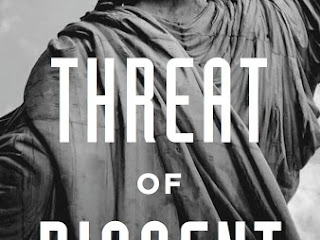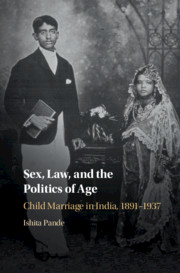- In the op-ed pages of the New York Times: John Fabian Witt (Yale Law School) writes about how courts have historically responded to challenges to public health laws -- and how they are doing so today ("Republican Judges Are Quietly Upending Public Health Laws").
- In the Washington Post's "Made by History" section: Bruce J. Shulman (Boston University) on how "Court-packing — and other radical constitutional reforms — might save America"; Daniel S. Luck on how "Originalism threatens to turn the clock back on race"; and more.
- Via Religion & Politics: Ronit Y. Stahl (University of California, Berkeley) on "The Book of Ruth: Justice Ginsburg on Religious Freedom."
- The David Berg Foundation Institute for Law and History at Tel Aviv University has recently updated its bibliography of the history of Israeli law to expand its coverage down to 1977. The compilers write that they have consulted Palestinian and Arabic-language sources and would be very happy to receive further references.
- We’ve previously noted that Linda Kerber will deliver the 2020 Charles Homer Haskins Prize Lecture from the College and Law at the University of Iowa at 3:00 PM Eastern Time on Wednesday, October 28 and our now please to pass along word that Constance Backhouse, ASLH delegate to the American Council of Learned Societies and a former ASLH president, and former ASLH Treasurer, Craig Klafter, nominated Professor Kerber was nominated for this prize.
- A recording of the 2020 Roger Trask Lecture of the Society for History in the Federal Government, delivered by Bill Williams, formerly Chief of the Center for Cryptologic History at the National Security Agency, is here.
- We just wanted to make sure you all knew about Aaron Sorkin’s The Trial of Chicago 7. We still recall our viewing of the documentary William Kunstler: Disturbing the Universe, by the famous radical lawyer’s daughters.
- The 14th Annual South Asia Legal Studies Workshop happened online this week, hosted by the University of Wisconsin Law School. It included a good crop of legal history papers (program here).
- "100 Years After the 19th Amendment: Their Legacy, and Our Future,” a traveling exhibit of the American Bar Association, opens at the University of Kentucky J. David Rosenberg College of Law on October 18. Several events are planned, and the UK Law Library has created an accompanying website. More.
- ICYMI: Jack Rakove on originalism and Judge Barrett (WaPo). Sara Georgini, series editor for The Papers of John Adams, On the Peaceful Transfer of Power: Lessons from 1800 (AHA Perspectives). Michael Koncewicz, Tamiment Library & Robert F. Wagner Labor Archives, on Loyalty and Duty in the Federal Bureaucracy, From Nixon to Trump (HNN).
- Update: Over at IEHS Online, the website of the Immigration and Ethnic History Society, Jane Hong interviews Lucy Salyer about Under the Starry Sky. (Also: it does have legs: I discussed Laws Harsh as Tigers in class this semester, too! DRE.)
Weekend Roundup is a weekly feature compiled by all the Legal History bloggers.



